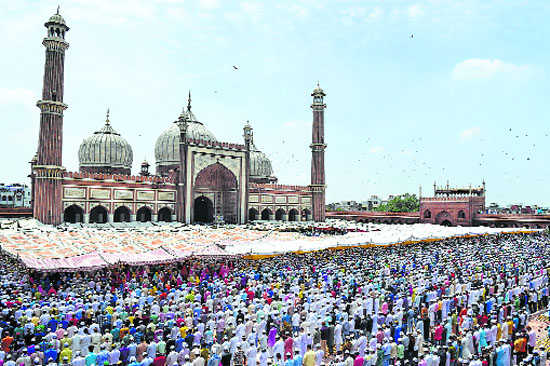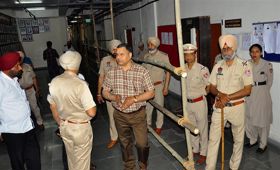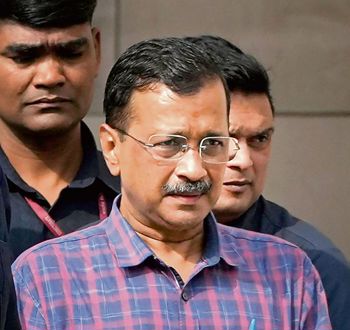
Hasan Suroor, London-based commentator
Hasan Suroor, London-based commentator
Ali A. Rizvi is a US-based Pakistani writer, and he has just published a book, The Atheist Muslim: A Journey from Religion to Reason, an extremely dispiriting account of what he calls the insular and "dogmatic" Muslim mind which he says led him to lose his own faith. Reading it, I thought of Indian Muslims and the popular narrative that they are different from their peers elsewhere. Just days ago, a friend (a fellow Muslim) chided me for lumping Indian Muslims with other Muslims.
“Look how sensibly they have dealt with the threats from the Sangh Parivar. They have remained calm and refused to be provoked. Isn't that a proof of their moderation? Let me tell you, if there's renaissance in Islam, it would be led by Indian Muslims,” he claimed.
True, Muslims have mostly not risen to the RSS bait and refrained from reacting emotionally. They have resigned to their new de facto second class status and gone into a shell hoping against hope for achhe din to return. Or, what in retrospect seem like achhe din compared to the daily humiliation they have been subjected to post 2014. But this pragmatic approach is driven by nothing more than a combination of fear, a sense of helplessness, and simple survival instinct. To read some profound meaning into it and present it as a sign of Muslim moderation is to make virtue of necessity. What they're doing is what non-Muslim minorities in Muslim countries have always done to stay safe. Which is to keep a low profile, acknowledge their minority (read inferior) status and the humiliations it brings, and carry on — quietly focussing on education, jobs and other bread-and-butter issues.
My issue with Muslims is that they have come to this “sensible” strategy 70 years too late. They should have got a measure of their vulnerability right after Independence and chosen a more pragmatic course rather than the path they took under a short-sighted leadership. It was breathtaking naïveté to assume that after all that had happened — Partition, et al — it was going to remain business as usual. Personal assurances and constitutional guarantees are one thing and the hard political realities are quite another as they have since discovered. Yet, they fell for a constitutional fairytale in which they would not only have a place on the high table but also be entitled to extra helping as a minority group.
The Muslim leadership opted for a strategy that was bound at some stage to produce a Hindu backlash. That it did not happen earlier was because for a long time there was a solid liberal Hindu core but it got eroded over the years — not least because many liberal Hindus lost patience with a community that seemed to have a chip on its shoulder about its minority status. As far back as the 1980s, the ill-judged Muslim campaign over the Shah Bano case prompted Justice Krishna Iyer (the ultimate liberal Hindu) to warn Muslim fundamentalists that their tactics risked waking up “the sleeping Hindu giant ....from its slumber”. Well, the “Hindu giant” has woken up — and with a vengeance.
This is not to say that in a contra-factual scenario, the “giant” would not have woken up one day. After all, there are far right Hindu nationalist forces which define themselves through their hostility towards Muslims and whose very raison d’etre depends on mobilising Hindus against a common “enemy” to capture power. What Muslims did was to make their task easier and in effect play into their hands by constantly harping on issues around Muslim religious and cultural identity. And invoking faith related “sensitivities” to demand mostly bogus concessions. To compound things, the Congress party, chasing Muslim votes, colluded with the worst of regressive community “leaders” to push their self-serving agenda. It was like throwing red meat to hungry wolves. And, the metaphorical wolves (the RSS and mates) seized on it to step up their propaganda about Muslim “appeasement” and “pseudo-secularism”.
So, the current “sensible” strategy is a legacy of the lessons learnt in 1992 when Babri Masjid was demolished. Which were reinforced by what happened in Gujarat in 2002. But what really persuaded Muslims to accept that India had changed and they must learn to come to terms with it was the election as PM of an unabashed Hindu nationalist and Islamophobe in 2014 and the campaign of terror against Muslims he has allowed to flourish, creating insecurity among Muslims. They have even taken to concealing their religious identity for fear of being targeted. The idea that this practical common sense is the result of some new enlightenment is as self-serving as the previous assumptions about their special status. It was a fantasy.
As for the Indian Muslims' capacity to lead an Islamic renaissance, there's no doubt that they are among the world's most moderate Muslims but they're also among the least educated, and most economically backward. All of which makes them extremely vulnerable to external radical influences. So far, they have been able to resist them because of their grounding in a liberal and culturally diverse ethos. But when that ethos is sought to be banished in the name of "Hindu pride" and Muslims find themselves excluded from the mainstream discourse and disenfranchised as part of a “Hindu-India” project, it will make them more vulnerable to radicalisation.
While the future of 180 million Indian Muslims is surely a matter of deep concern, the bigger question is: where is India headed with an agenda that is set to reduce the idea of Hinduism to Ali Rizvi's description of Islam -- and India to a replica of Pakistan and Afghanistan?



























